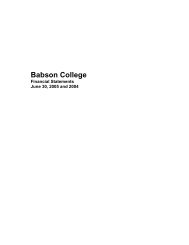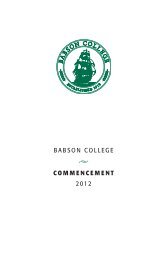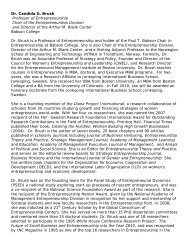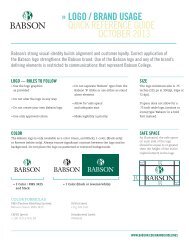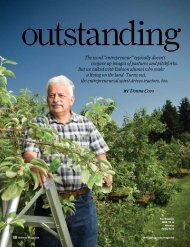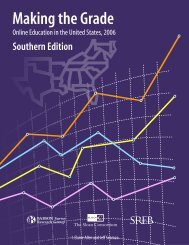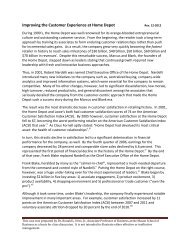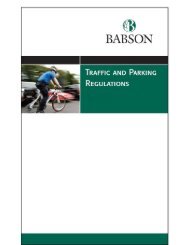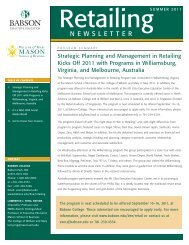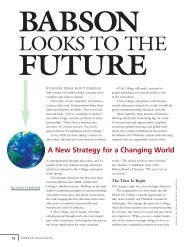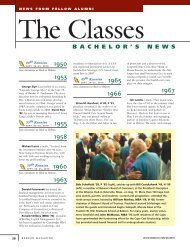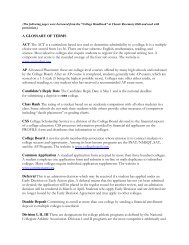fesanco (pdf) - Babson College
fesanco (pdf) - Babson College
fesanco (pdf) - Babson College
You also want an ePaper? Increase the reach of your titles
YUMPU automatically turns print PDFs into web optimized ePapers that Google loves.
Miguel’s high school years, from 1969 to 1973, were a period of great social and<br />
political upheaval in many Latin American countries, including Chile. Miguel became<br />
deeply introspective and for a time lost his religious faith. He wondered why there was<br />
so much hatred and intolerance in the world. He decided that in such a chaotic<br />
environment, the only way to achieve success was through hard work and integrity.<br />
Toward the end of 1973, a military government took over in Chile and ruled until 1998.<br />
Miguel began studying for a degree in mechanical engineering at the Pontificia<br />
Universidad Catolica de Valparaiso in 1974. He was the first member of his family to<br />
have the chance to pursue a professional career.<br />
At this time, Miguel (like other students in Chile) was focused only on his studies. But<br />
by his fourth year at the university, he felt that some of the classes given by his<br />
professors did not address his interests, and he decided to take the initiative, with the<br />
consent of the school’s administration. Miguel and some of his classmates created the<br />
Professional Extension Group (PEG). Their goal was to develop a roundtable forum in<br />
which undergraduates could create workshops and discuss new topics and issues related<br />
to mechanical engineering.<br />
The dean warned Miguel that group activities at universities, especially political ones,<br />
were forbidden, and that starting PEG would be risky. Miguel responded that he was<br />
well aware of the restrictions. He knew it was a risk both for himself and the university,<br />
but he believed the school should trust him. He said, “Our purpose is professional, but it<br />
is also cultural. People are made up of body, mind, and spirit, and all these dimensions<br />
deserve attention. This initiative is a good way to add value across those dimensions.”<br />
Despite the negative predictions of his classmates, Miguel received permission to start<br />
PEG at the university. Miguel and the other founders were extremely enthusiastic. They<br />
invited entrepreneurs and executives to their conferences and seminars. They also<br />
organized professional workshops where undergraduates analyzed new projects and<br />
watched films about mechanical engineering and specialized foreign documentaries.<br />
PEG became well known at the university, and soon professors also joined PEG and<br />
became active in discussion forums.<br />
The following year, the dean asked Miguel to become the president of his class, but he<br />
said no because he had been appointed to the position rather than elected by his<br />
classmates in a democratic election. In the end, however, he accepted the responsibility<br />
because his fellow students wanted him as their leader and pressed him to take the job.<br />
As president, he created teams of students that enthusiastically developed programs, and<br />
he invited students to participate in social and spiritual reflection activities.<br />
Early jobs<br />
Miguel graduated in 1980 and began his first professional experience at Flexshoes, a<br />
small company that made shoes. Miguel was in charge of machinery maintenance, and<br />
in his free time he talked to workers and learned about their problems and goals for the<br />
future. After thinking about how to better manage employees, Miguel said to his boss<br />
one day, “I’m convinced that the only way to achieve success in business is to develop a<br />
motivated team of workers who are totally focused on quality.”<br />
2



